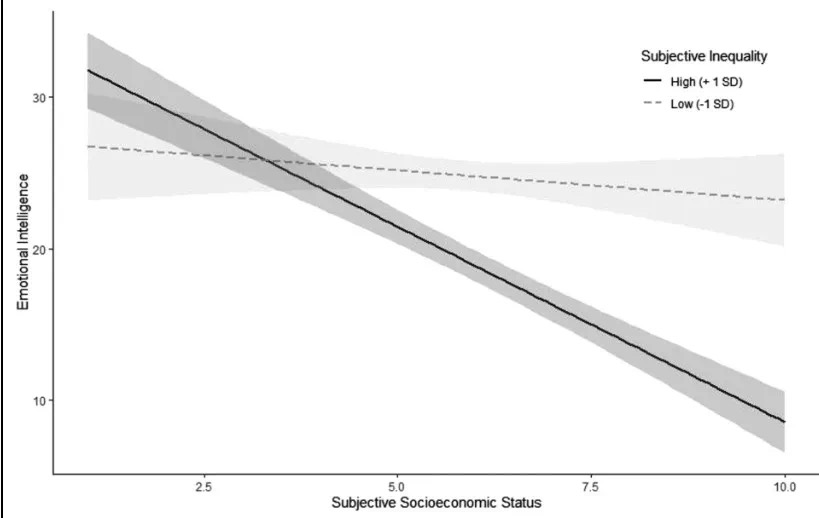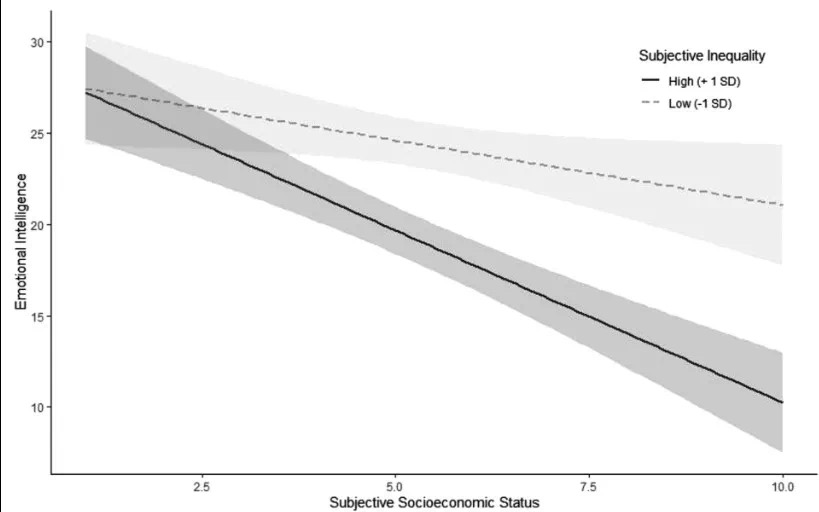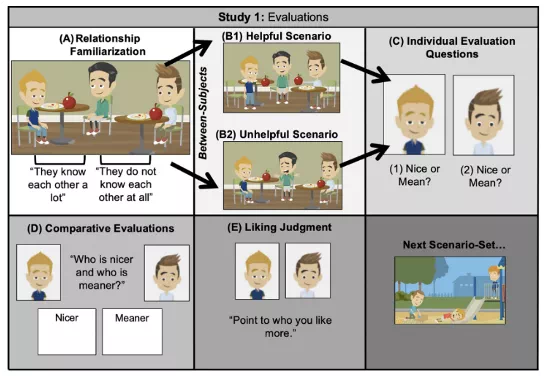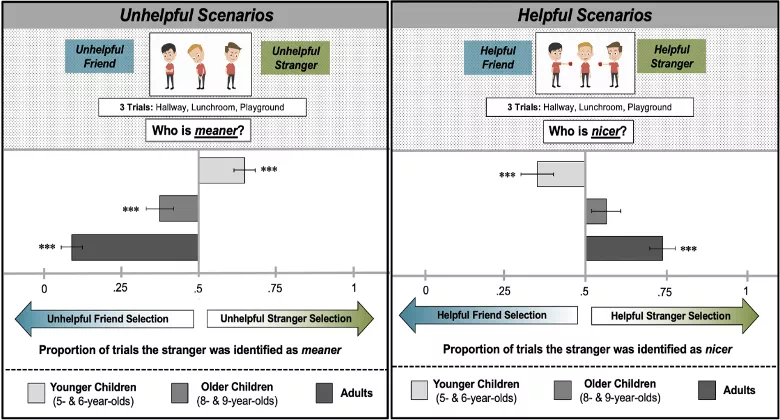“不是小编吹牛,小编直到今天大脑中还时不时重复回放十几年前说过的一句话,而且每次回放当时场景都会依旧面红耳赤捶胸顿足嗫喏顾盼羞臊不已……”
If you're like most people, you've had the experience of obsessing over something stressful that happened in your day. It may have been something someone said that hit you in the gut, it may have been a situation where you wish you had the perfect comeback, or it may be a problem that replays itself in your mind over and over with no acceptable solution in sight.
如果你和大多数人一样,那么你也曾经有过对当天发生的某件应激性事件(给你很大压力的事件)偏执般不断回想的经历。比如可能是别人说的一些直接击中你要害的话,或者你某个你希望你当初能想出更好的回怼方式的情形,或者是在大脑中一遍又一遍重演某个问题但始终无解。
What Is Rumination? 什么是思维反刍
Rumination involves repetitive, excessive thoughts that interfere with other types of thinking. This type of thinking often occurs with conditions such as generalized anxiety disorder and obsessive-compulsive disorder, but it is also common for people without a diagnosable disorder to engage in this type of thinking from time to time.
思维反刍包含重复性地、过度的思绪,而且这些思绪影响其他思维类型。这种思维类型通常出现于广泛性焦虑障碍和强迫症等病症,但一些未被诊断有障碍的人会时不时陷入这种思维。
Rumination is as stressful as it is common, in that it takes a situation that has already caused stress and magnifies the stress and the importance of the situation in our minds.
思维反刍不仅普遍,而且也同样给人造成很大压力。因为它会在我们大脑中放大某一情形的压力感以及该情形的重要性。
Common phrases that describe what thought rumination feels like:
一些常用于描述思维反刍的语句包括:
“I’m always in my head”
我始终会胡思乱想
“I have racing thoughts”
我的思维如奔腾一般不受控制
“I’m constantly dwelling on things”
我常常纠结于一些事
“I can’t shut my mind off”
我无法关掉我的大脑
“I tend to overthink everything”
我对每一件事都会想得太多。
It is important to point out that ruminating thoughts, to a certain extent, are actually quite natural. Many people experience temporary rumination when undergoing situational stressors.
需要指出的一点是,在特定程度上,反刍思维是很正常的。很多人在经历环境应激源(压力源)时会经历暂时的思维反刍。
Examples of temporary rumination can be:
暂时性思维反刍可能会是以下情形:
· Continually worrying about an upcoming test
持续担忧一件即将到来的事情。
· Reliving an important conversation
大脑中不断回放一段重要的对话。
· Thinking about a meaningful event that happened in the past
不断想着过去发生的一件富有意义的事情。
Typically, people ruminate to analyze/gain insight about problems or to come up with solutions (which is known as reflective rumination). Nonetheless, individuals can also ruminate about perceived mistakes or negative aspects of themselves (which is known as brooding rumination).
通常,人们的思维反刍时为了分析/深入了解一些问题或想要想出解决方案,这被称为反思性思维反刍。但有时一些人会对自己主观认为的一些错误或自身负面因素而思维反刍,这被称为忧郁沉思性思维反刍。
Rumination also hones in on the feeling of helplessness that can result from the inability to change what has already happened. We may not be able to re-create the situation in the future and respond with the perfect comeback, response, or solution, and this can make us feel powerless and more stressed.
思维反刍也会集中于因无力改变已发生事物而产生的无助感。我们可能无法在未来重现该情形让我们去给出完美回怼、回应或解决方案,这会让我们感到无能为力,更加有压力。
Finally, realizing how much energy we put into ruminating over the situation can lead to even more feelings of frustration as we realize that we've let the situation continue to ruin the day.
最后,意识到自己在一直不断想着这个情形,这会让我们更感挫败,因为我们意识到我们已经让这一情形继续破坏了我们一整天的好心情。
Co-rumination, where you rehash a situation with friends until you’ve talked it to death, also brings more stress to both parties once it passes the point of being constructive.
集体思维反刍,是指与朋友一起无休止地去谈某个情形,一旦这种行为不再能给出建设性信息,那么就会给双方带来更多心理压力。
In short, if you find yourself constantly replaying something in your mind, dwelling on the injustice of it all, and thinking about what you should have said or done without taking any corresponding action, you’re making yourself feel more stressed. And you are also likely experiencing some of the negative effects of rumination.
简而言之,如果你发现你大脑中不断在回放某件事,不断去想着这件事的不公正之处,不断去想当初本该说什么或做什么,却没有采取任何相应的行动,那么你就在增加自己的心理压力,而且你也可能正在经历思维反刍的一些负面后果。
Causes of Rumination 思维反刍的起因
Research suggests that the default mode network (DMN) is implicated/involved in the process of rumination. The DMN is an interconnected series of brain regions that are active when we’re lost in thought, daydreaming, or reminiscing. In other words, the DMN is activated when we are on “autopilot,” which is when we tend to ruminate. Thus, when we actively pay attention to what we are doing, the DMN is less activated.
研究显示,默认模式网络(DMN)以间接或直接方式参与了思维反刍过程。DMN时一系列相互连接的大脑区域,当我们陷入沉思、遐想或者回忆时这一系列区域就会被激活。换言之,当我们处于“自动驾驶”模式时,DMN就会被激活。而我们在“自动驾驶”模式时,我们往往会思维反刍。因此,当我们主动专心于当前所做的事情时,DMN的活跃程度则降低。
A recent meta-analysis revealed that meditation is strongly associated with a reduction in activity of the DMN.
近期的一项元分析显示,冥想与DMN活跃性的降低之间具有高度相关性。
So why do people obsess over things? It appears that different people obsess over things for different reasons, and some people are more prone to it than others.
为什么人们会偏执般纠结于事情呢?似乎不同的人原因也不同,而且一些人比另一些人更易于陷入这种心态。
Some people want to make sense of a situation, but can't seem to understand or accept it, so they keep replaying it. Other people want reassurance that they were right (especially if they feel on an unconscious level that they were wrong).
一些人想要搞明白某一情形,但似乎总是无法理解或接受,所以他们不断回放该情形。
还有一些人想确信自己是正确的(尤其是当他们在潜意识上感到自己是错误的时)。
Some people are trying to solve the problem or prevent similar things from happening in the future, but can't figure out how. And others may just want to feel heard and validated or want to feel justified in absolving themselves of responsibility.
一些人试图解决问题或者避免未来发生类似问题,但想不出解决办法。
还有一些人可能想要别人理解自己、认同自己,或者想要感到自己有合理理由不承担责任。
Specific situations can trigger rumination. By obsessively going over an event or repeating certain thoughts, people often mistakenly believe that they can gain control of the situation.
某些特定情形会触发思维反刍。不断偏执般地去回放某个事件或者重复特定想法,人们通常会有种他们能掌控该情形的错觉。
Most people engage in this type of thinking from time to time. Before a stressful event, you might find yourself thinking about it excessively. After a relationship ends, you might go over all the things you wish you had done differently.
大多数人都会时不时经历思维反刍。在某一充满压力的事件发生之前,你可能会发现你在过度思考这一事件。在一段感情结束后,你可能会回想所有让你感到后悔的事情。
In most cases, these ruminating thoughts eventually fade as other concerns rise to the forefront of your thoughts. When these thoughts are persistent and seem uncontrollable, they might be a sign of a mental health condition.
大多数情况下,当大脑开始关注其他事情,这些反刍思维最终就会逐渐消退。但当这些想法挥之不去,而且似乎无法控制,可能就意味着存在某种精神健康疾病。
Rumination can be a symptom of a variety of mental health conditions. Some conditions that are associated with ruminating thoughts include:
思维反刍可能会是很多精神健康疾病的症状之一。一些与反刍思维相关的疾病包括:
Depression/抑郁症
Generalized anxiety disorder (GAD)/广泛性焦虑障碍
Obsessive-compulsive disorder (OCD)/强迫症
Phobias/恐惧症
Post-traumatic stress disorder (PTSD)/创伤后应激障碍
Rumination has a number of different potential causes. Some factors that can play a part in this type of thinking include personality traits, trauma, stress, and some mental health conditions.
反刍思维有很多不同的潜在原因。一些潜在因素包括:性格特征、创伤、压力以及一些精神健康疾病等。
The Negative Effects of Rumination 反刍思维的负面后果
Rumination starts innocently: It's your mind's attempt to make sense and move on from a frustrating situation. However, rumination can catch you in a circular, self-perpetuating loop of frustration and stress. When you're dealing with chronic conflicts in your relationships, you may experience chronic stress from too much rumination.
反刍思维最开始完全无害:你的大脑试图清楚理解某件事,试图走出某种令我们感到挫败沮丧的情形。但在思维反刍中,我们可能就会陷入一种周而复始的挫败感与压力感循环之中。当你的感情中持续存在冲突时,你可能就会因为过多思维反刍导致自己处于长期心理压力之下。
It's important to find ways of catching rumination before you get caught up in it and working on handling conflicts in a healthy way.
Rumination can be oddly irresistible and can steal your attention before you even realize that you’re obsessing again. In addition to dividing your attention, rumination has several negative effects.
想办法提前意识到思维反刍迹象,并努力以健康方式去解决冲突,这非常重要。
思维反刍会出奇地难以抗拒,在你甚至还没来得及意识到你又一次陷入思维反刍时,它就偷走了你的所有注意力。除了消耗你的注意力之外,它还有一些其他的负面效果。
01 Stress 应激(心理压力)
Several bestselling books on mindfulness have been touted as excellent stress-relief resources, such as "There You Are" by Jon Kabat-Zinn and Eckhart Tolle's "The Power of Now" and "A New Earth, and Wherever You Go."
One of the major reasons that these books relieve stress so well is that they provide examples of how to drastically cut down on rumination, which leads to a stressed state of mind.
Studies show that rumination can raise your cortisol levels, signifying a physical response to stress.
很多关于正念的畅销书都被宣称为出色的压力缓解工具,比如 Jon Kabat-Zinn的《There You Are》和 Echhart Tolle的《The Power of Now》以及《A New Earth, and Wherever You Go》。
之所以这些书籍具有如此有效的减压效果,主要原因之一就是它们提供了一些能够显著减少思维反刍的示例,思维反刍,会导致思维处于应激(压力)状态。
研究显示,思维反刍,会提升皮质醇水平,这意味着压力导致了生理反应。
02 Negative Frame of Mind 负面思维模式
Not surprisingly, rumination is said to have a negative effect by producing a more depressed, unhappy mood. Not only is this unpleasant in itself, but from what we know about optimism and pessimism, this negative frame of mind brings a whole new set of consequences.
并不令人意外,思维反刍被认为具有负面后果,因为它会令人更加抑郁、不开心。其负面性不止存在于这一事实本身,从我们对积极主义与消极主义的理解而言,这种负面思维模式还会导致一连串其他后果。
03 Less Proactive Behavior 行为主动性降低
While people may get into a ruminating frame of mind with the intention of working through the problem and finding a solution, research has shown that excessive rumination is associated with less proactive behavior, higher disengagement from problems, and an even more negative state of mind as a result. That means that rumination can contribute to a downward spiral of negativity.
尽管人们开始思维反刍,最初是为了解决问题和寻找解决办法,但研究显示,过度思维反刍与以下现象相关:行为主动性降低、更加脱离问题本身,以及因此而导致的更加负面的思维状态。这意味着,思维反刍会导致负面性不断恶化发展。
04 Self-Sabotage 自我破坏
Research has linked rumination with negative coping behaviors, like binge eating. Self-sabotaging types of coping behavior can create more stress, perpetuating a negative and destructive cycle.
经研究发现,思维反刍与负面应对机制也存在联系,比如暴饮暴食等。自我破坏型应对机制会创造更多心理压力,形成持续恶性循环。
05 Hypertension 高血压
A link has also been found between rumination and hypertension. Rumination may prolong the stress response, which increases the negative impact of stress on the heart. Because of the health risks involved with hypertension, it’s particularly important to combat rumination and find healthy strategies for dealing with stress and staying centered.
思维反刍也被发现与高血压相关。思维反刍可能会延长应激反应(我们对压力因素所产生的反应),从而增加应激反应对心脏的负面影响。鉴于高血压相关的健康风险,抵抗思维反刍,找到健康的压力应对方法和保持心态平衡的方法,就尤其重要。
Rumination can have a number of serious health consequences including more stress, more self-sabotage, and decreased positive thoughts and actions. It can even affect your physical health, including raising your risk for hypertension.
思维反刍会产生众多严重的健康问题,其中包括心理压力增加、更多自我破坏行为、正面思维和行为减少等。甚至它还会影响你的生理健康其中包括增加高血压风险。
06 Rumination and Anxiety 思维反刍与焦虑
When you struggle with rumination and anxiety you will tend to have thoughts related to your problems or your fears. Usually, ruminating thoughts involve answering questions like “what if…?” or “what’s the worst that could happen?”
当你挣扎于思维反刍和焦虑时,你往往会产生一些与自身问题或恐惧相关的想法。通常,在这些反刍思维中,你试图去回答“如果…….会怎样”以及“可能发生的最坏情形是什么?”等问题。
An important distinction is the object of the ruminating thoughts.
一个最重要的区别,是反刍思维的内容。
Are you ruminating about a solvable problem/situation?
你的反刍思维是否是关于一个可以解决的问题/情形?
Are you ruminating about an unsolvable problem or something you can’t change/control?
你的反刍思维是否是关于一个无法解决的问题或你无法改变/控制的事情?
If it’s the former and you are able to stop ruminating (after you identify a solution) and take action accordingly, you will probably feel some relief. If it’s the latter, this might lead to further distress and anxiety.
如果是前者,而且你能够让自己停止思维反刍(在找到解决方案之后),而且能够相应采取行动,那么你大概率会感到缓解。但如果是后者,可能就会导致进一步的痛苦与焦虑。
Other indicators of anxiety in the body are:
焦虑的其他生理迹象包括:
Muscle tension or pain
肌肉紧张或疼痛
Increased heart rate
心率增加
Rapid breathing/shortness of breath
呼吸急促/气短
Sweating/出汗
Trembling/shaking/发抖
Digestive issues/消化问题
Among others/其他
Overcoming Rumination 克服反刍思维
While understanding why you are ruminating can help you find ways to cope, it often matters less why you obsess over things and more how you can stop. Here are a few ideas on how to catch yourself and refocus.
尽管了解反刍思维的起因,可以帮助你找到应对方法,但通常“如何停止”要比“为何发生”更重要。以下一些方法可以帮助你悬崖勒马,重新聚焦思维。
01 Distraction techniques 转移注意力
The use of distraction can be helpful in providing you with temporary relief from the distress. Distraction is like a “pause button” that pauses the pain and gives you a “break.”
Some helpful ways to distract are doing simple activities (e.g. engaging in chores, browsing your phone, or watching a movie) and immersing in them with your full attention.
If it’s initially difficult to engage in any activity due to having trouble disengaging from your thoughts, you might want to try thought stopping. You can try this by thinking or saying to yourself “STOP,” or even envisioning a big red STOP sign to help change your attention.
通过分散注意力,可以为你暂时缓解痛苦。它就像是一个暂停键,可以暂时停止痛苦,给你喘息之机。
一些有效的分散注意力方法包括:选择一些简单的活动,比如家务、看手机、看电影等,然后完全沉浸其中。
如果最开始因为难以逃离自己思绪,因此很难开展任何活动,你可能就需要试着去立即叫停。你可以试着在大脑中默念或出声告诉自己“停止!”,或者甚至想象一个很大的红色“停止”标识来帮助你转移注意力。
**About Thought Suppression
关于思维抑制**
It is important to note thatresearch has shown that thought suppression (trying to actively push thoughts away) could actually be counterproductive as it could exacerbate the distress.
It’s like trying to sit on top of a beach ball while in the water. You work very hard at keeping it under water, but it will keep popping back up every once in a while. As much effort as you put into it, it is just unsustainable to keep pushing it down. Acknowledging emotions and learning how to tolerate their presence is the most effective way to manage their intensity.
需要提到一点,研究已经表明思维抑制(试图主动推开大脑中的想法)实际上可能会有害,因为它可能会加剧痛苦。
这就像是坐在一个浮在水面上的沙滩球上,试图把它压下去。你费尽全力想要把它压在水面之下,但它始终会时不时浮上来。无论你如何努力,都无法始终将它压在水面之下。接受自己的情绪,学习如何容忍它们的存在,是管理情绪强度的最有效方法。
02 Mindfulness Meditation 正念冥想
This is a very helpful skill to manage rumination and it can be practiced anywhere and anytime. Mindfulness, in essence, is connecting with the present moment (the here and now), while noticing inner experiences (e.g. thoughts, emotions, sensations, etc.) non-judgmentally.
这是管理思维反刍的一个非常有效方法,而且不受空间和时间限制。本质而言,正念,是指聚焦当前时刻(此时此地),同时关注内在体验(比如想法、情绪、身体感受等)并且对它们不做任何评判。
03 Establish a Time Limit 设置时间限制
It can be helpful to get support and validation from your friends, but too much discussion of wrongs perpetrated by others can lead to a dynamic in your relationships that's negative and gossipy and lends more to reinforcing the frustration of the situation than to finding solutions and closure.
If you're seeking support from friends, you can secretly set yourself a time limit on how many minutes you'll allow yourself to devote to talking about the problem and your feelings around it, before focusing on a solution. Then brainstorm solutions with your friend, or on your own in a journal.
如果能够得到朋友支持和认可,也会是有益的。但过多谈论别人所犯错误,会导致你的人际关系演变为一种负面和八卦的动态模式,相对于找到解决方案和划上圆满句号,它更易于让挫败感进一步增强。
如果你想寻求朋友支持,你可以暗暗为自己设定一个时间限制,规定自己只能在这一时间内谈论这一问题和自己的相关感受,超出这一时间限制,就需要聚焦于寻找解决方案。然后与朋友一起头脑风暴去想解决方案,或者自己通过记日记的方式自己寻找解决方案。
04 Keep an Open Mind 保持开阔思维
It's been suggested by more than a few therapists that what really upsets us about others may be a mere reflection of what we don't accept in ourselves.
When you think about what the other person did to make you angry, can you try and draw on a similar experience in yourself to help better appreciate their perspective and the reasons behind what they did?
Even if you don't necessarily agree with them, can you empathize?
很多心理咨询师都认为别人身上让我们不满之处,可能只是我们对自身不满之处的一种反射。
当你思考另一个人做的惹你愤怒的事情时,是否可以去回想自己的一个类似经历,从而让自己更好地理解对方的视角和背后原因呢?
即使你不认同他们,那么是否可以保持同理心呢?
05 Create Boundaries 设置界限
Remember the wonderful phrase: "First time, shame on you; the second time, shame on me." It perfectly describes responsibility and the importance of setting boundaries, and if nothing else, allows you to use each encounter to learn something about yourself and the other person so you can change the way things go in the future.
记住这一句睿智之语:第一次,是你的错;第二次,就是我的错了。这句话完美描述了责任,以及设定界限的重要性,而且,还可以让你通过每一次互动来深化对自己和对方的了解,从而改变事情在未来的发展方向。
Look at what happened with the eye of change—not to blame the other person for hurting you, but to come up with solutions that will prevent the same situation from occurring twice. Where might you say no earlier, or protect yourself more in the future? Rather than remaining hurt or angry, come from a place of strength and understanding.
以变化视角去审视发生的事情——不要去指责对方伤害了你,而是相办法避免同样的情形发生第二次。自己可以在哪一步更早一点拒绝,或者未来可以怎样更好地保护自己?不要一直保持在受伤或愤怒状态,而是从力量和理解的角度出发。
In conclusion, there are times in which rumination is natural and even adaptive; however, it could become harmful if it causes distress and interferes with your daily functioning.
总而言之,有时思维反刍是自然甚至是良性的,但如果它导致痛苦或对日常机能产生影响,那么就变得有害了。
06 If you would like extra support and guidance to manage rumination, you may consider trying therapy. 如果你想要额外的支持和指导,可以考虑心理咨询。
Therapy Approaches that are Helpful for Rumination:
对思维反刍有帮助的心理咨询方式包括:
Cognitive Behavioral Therapy (CBT)
认知行为疗法
Rumination Focused Cognitive Behavioral Therapy (RFCBT) and
聚焦思维反刍的认知行为疗法(RFCBT),以及
Acceptance and Commitment Therapy (ACT)
接纳与承诺疗法(ACT)







